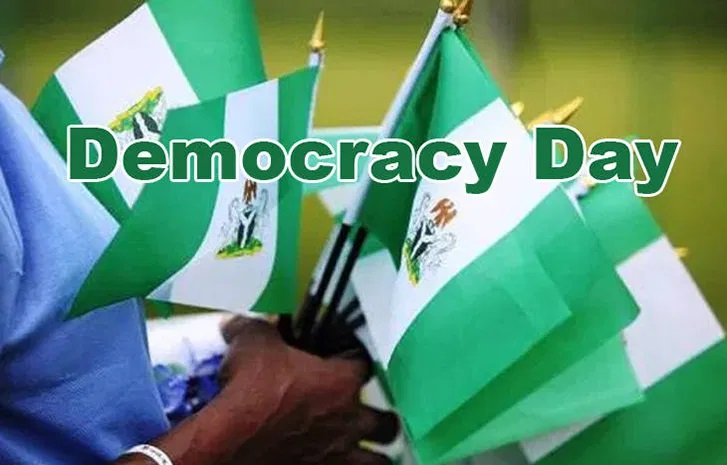June 12: A Day of Reflection, Not Celebration
Nigeria is marking 25 years of democracy. But instead of joy, many citizens are feeling disappointed and frustrated. For them, Democracy Day isn’t a celebration it’s a reminder of broken promises.
Youth Voices: “We’re Struggling to Survive”
Tabitha Onah, a youth corps member serving in Abuja, shared how hard life has become.
“Since President Tinubu took office, the cost of everything has gone up transport, food, you name it,” she said. “The new ₦77,000 allowance doesn’t last a week.”
She also raised concerns about political unrest. “When governors are removed like pawns, it makes you wonder—are we really in a democracy?”
Lack of Inclusion and Rising Tensions
Chidera Ononiwu, a student leader, believes the government doesn’t represent everyone.
“It’s hard to trust this system when most appointments come from one region,” he said. “Democracy should be about fairness and accountability.”
For Many, Democracy Feels Like a Lie
Jeremiah Yibowei, a web developer, doesn’t believe the current government has delivered any benefits.
“Prices have increased by 80%. This administration brought nothing but pain,” he said. “It feels like democracy is just a label.

Women and Small Business Owners Feel Left Behind
Student and tailor Amina Maikasuwa feels ignored.
“We adjust and move on, like we don’t matter,” she said. “No one listens to women or small business owners. What kind of democracy is that?”
Civil Society Raises the Alarm
Dr. Ibrahim Zikirullahi of CHRICED says the vision of June 12 has faded.
Instead of progress, we’re going backward. The suffering is worse under Tinubu,” he warned.
One-Party System and Political Intimidation?
In Kano, people like Hamisu Ibrahim accuse Tinubu of turning Nigeria into a one-party state.
“This isn’t democracy—it’s intimidation,” he said.
While some, like Balarabe Sule, admit there have been minor improvements, many say these are overshadowed by fear and poor leadership.
Debt, Insecurity, and Hunger: The Reality on Ground
Benue activist Attah Ede says the country feels like it’s in a coma.
“With rising fuel prices, no electricity, and constant fear, life is unbearable,” he said.
Pius Elijah agrees. “These past two years have been a nightmare,” he said. Tina Emmanuel added, “The suffering is just too much.”
Experts Demand Reforms, Not Rhetoric
Auwal Rafsanjani of CISLAC says Nigeria’s democracy is falling apart.
“Corruption, bad elections, and poor leadership are killing trust in government,” he said.
He criticized the disappearance of fuel subsidy savings and the lack of real solutions. “People are getting poorer. There’s no relief in sight.”
No Safety Net for the People
Political analyst Dr. Kabiru Lawanti blames harsh policies for rising poverty.
“Fuel is now ₦1,200. Food prices are out of control. Reforms only work when they protect the people,” he said.
He added that shutting down the legislature and opposition voices makes things worse. “We need real change, not just big talk.”
A Democracy That Punishes the People?
Lawyer and activist Femi Aborishade didn’t hold back.
“This is the worst government in our history. People are hungry, and only the rich benefit from these reforms,” he said.
Hope Depends on Bold Action
Professor Hassan Saliu urged Tinubu to change direction.
“Policies must help the people. Otherwise, what’s the point of celebrating democracy?” he asked.
Andrew Mamedu of ActionAid Nigeria agreed, calling for people-focused development. He warned that corruption and poor planning only make things worse.
Chris Kwaja of the US Institute of Peace added a final warning:
“If Nigeria’s leaders don’t act fast, democracy will become nothing more than an empty promise.”



